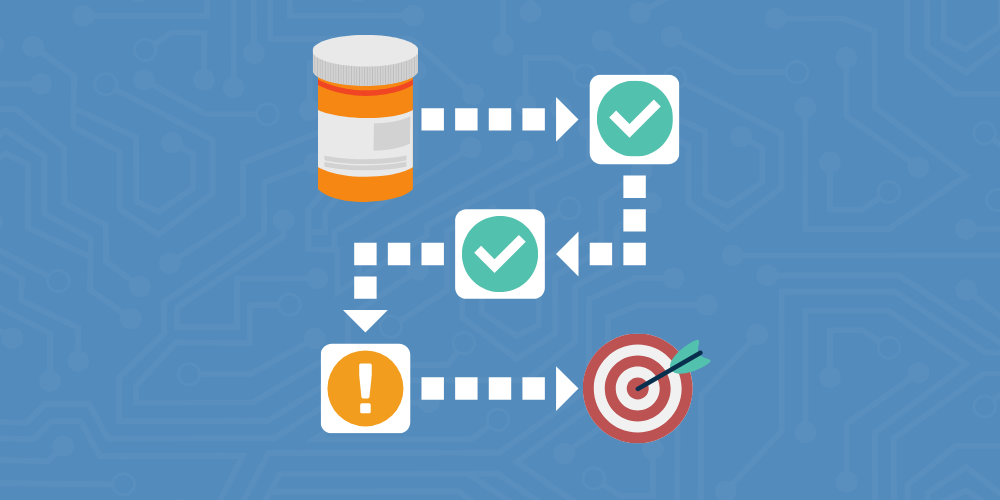
During clinical drug trials, ensuring patient safety and maintaining regulatory compliance is of paramount importance.
Even promising results can be accompanied by complexities and challenges associated with adverse event (AE) management, as demonstrated in Avidity Biosciences’ recent Duchenne muscular dystrophy (DMD) trial.
With the increasing complexity of clinical data and the heightened scrutiny from regulatory bodies, the need for a robust and efficient adverse event management process has never been more critical.
The challenges of adverse event management in clinical trials
Clinical trials, by their very nature, involve the administration of investigational treatments to patients, which can lead to unforeseen adverse events. These events must be meticulously tracked, analyzed, and reported to ensure patient safety and regulatory compliance. However, the traditional methods of managing AEs — often reliant on manual processes, spreadsheets, and fragmented data systems — are no longer sufficient to meet the demands of modern clinical research.
In the case of Avidity Biosciences, their DMD trial highlighted the importance of managing adverse events with precision and speed. According to Fierce Pharma, two patients dropped out of the trial after experiencing treatment-emergent adverse events — including one case of anaphylaxis.
The complexity of these events and the need for rapid, accurate data interpretation underscore the importance of having a streamlined AE management system in place.
The role of automation in enhancing safety and compliance
Enter automation. By integrating automated tools into the AE management process, clinical trial teams can significantly enhance their ability to monitor, manage, and report adverse events.
MIRador, a cutting-edge medical information request (MIR) management solution, is designed to address these exact challenges, offering a suite of features that streamline AE handling and ensure compliance with regulatory standards.
1. Streamlined data collection and triage
One of the primary benefits of automation in AE management is the ability to streamline data collection and triage processes. MIRador’s automation capabilities allow clinical teams to gather AE data from multiple sources—including patient records, clinician reports, and laboratory results—and consolidate it into a single, centralized platform. This not only reduces the risk of data fragmentation but also ensures that all relevant information is captured accurately and promptly.
Automated triage features enable the system to prioritize AEs based on severity and urgency, ensuring that the most critical events are addressed first. This is particularly crucial in scenarios like Avidity’s trial, where swift action could mean the difference between life and death for patients experiencing severe reactions.
2. Accelerated analysis and reporting
Time is crucial in clinical trials. MIRador’s advanced analytics tools allow for the rapid analysis of AE data, helping clinical teams identify patterns and potential safety signals more quickly than traditional methods. This accelerated analysis not only improves decision-making but also facilitates timely reporting to regulatory authorities, a key factor in maintaining compliance.
For any trial, the ability to quickly analyze and address adverse events, such as the anaphylaxis case in Avidity’s trial, is critical for patient safety and regulatory adherence. The ability to generate standardized reports at the click of a button ensures that all necessary documentation is prepared and submitted on time, reducing the risk of regulatory penalties.
3. Enhanced compliance and risk mitigation
Compliance with regulatory requirements is non-negotiable in clinical trials. MIRador’s automation features include built-in compliance checks that ensure all AE management processes adhere to the latest regulatory guidelines. This is particularly important in the context of adverse event reporting, where even minor deviations from protocol can result in significant fines or delays in trial progress.
By automating these compliance checks, MIRador helps clinical teams avoid common pitfalls, such as incomplete documentation or missed reporting deadlines. Additionally, the system’s audit trails provide a transparent record of all actions taken, offering an extra layer of protection in the event of an audit or investigation.
Safeguarding patient safety and trial integrity with MIRador
The complexities of clinical research, as seen in the Avidity Biosciences trial, highlight the importance of effective adverse event management. By leveraging automation through tools like MIRador, clinical trial managers, medical affairs professionals, and compliance officers can enhance their ability to manage AEs, ensure patient safety, and maintain regulatory compliance.
MIRador’s suite of features — streamlined data collection and triage, accelerated analysis, and enhanced compliance — empowers clinical teams to manage AE challenges effectively. This approach safeguards the integrity of trials and contributes to the development of safer, more effective treatments for patients.
As clinical research evolves, integrating automation into AE management processes will become increasingly important. By adopting solutions like MIRador, life sciences organizations can ensure that their trials are conducted with the highest standards of safety and compliance.
Ready to learn more about automating your adverse event management process and ensuring your trials are conducted with the highest standards? Request a demo of MIRador today.




